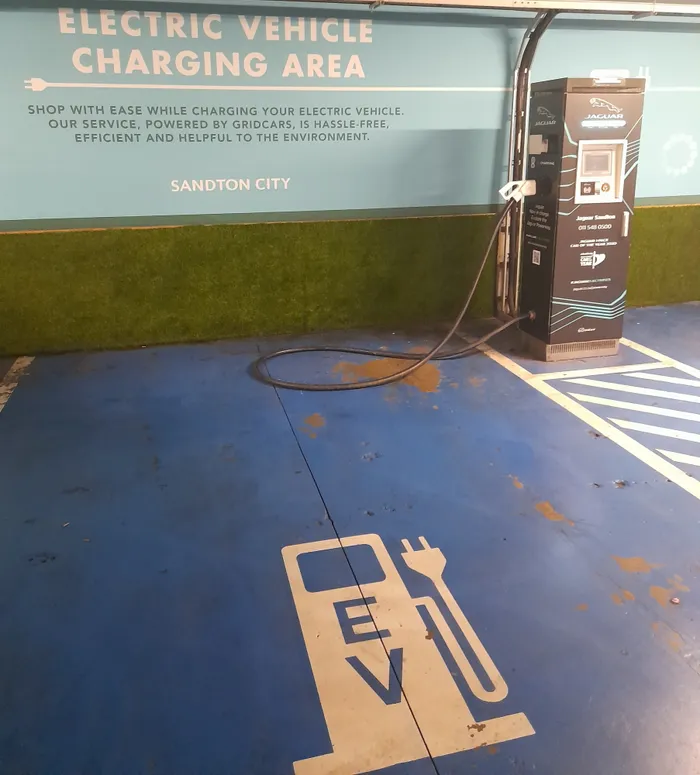We need to steer the transition to green vehicles – for our own sake

We need to steer the transition to green vehicles – for our own sake
By Simphiwe Ngwenya
Global decarbonisation commitments and actions by South Africa’s trade partners in their transport sectors has caused a need to transform the manufacturing of vehicle and components from internal combustion engines (ICE) to new energy vehicles (NEVs).
The consequences of the global energy transition are not only felt in the energy sector, but all other sectors of the economy, and the transition to NEVs is one of the many moving pieces in South Africa’s pursuit of a just energy transition.
Specifically, the EU and the UK, major importers of our vehicles, have set targets for phasing out all new sales of internal combustion engine passenger vehicles by 2035. However, impacts to outlaw the manufacturing of ICE vehicles will begin to sting the vehicle manufacturing industry even before 2035 as the operational processes change and the global decline for ICE vehicles begins to materialise.
A well-established auto sector at a crossroads
In 2022, the automotive industry contributed 4.9% to South Africa’s gross domestic product. Of the 555 889 vehicle units produced, 360 000 units were exported.
The manufacturing industry’s manufacturing hubs are regionally focused in the Eastern Cape, Gauteng and KwaZulu-Natal. The industry is responsible for employing about 3% of the 16.2 million people employed in South Africa and is therefore one of the key contributors to alleviating the socio-economic challenge of unemployment.
The transport sector is also a contributor to local and global climate emissions due to tailpipe emissions caused by liquid fossil fuel combustion from cars, trucks, ships, trains and planes.
South Africa’s national greenhouse gas emissions inventory, compiled by the Department of Environment, Fisheries, Forestry and Environment, shows that emissions from the transport sector accounted for 13% of the country’s 2020 emissions, with 92% of the emissions being attributed to road transport.
The Presidential Climate Commission is working with the National Department of Transport to develop the Just Transition Strategy for this sector to align industry plans with Nationally Determined Contribution commitments and objectives and to outline a pathway that reduces the sectors vulnerability to climate change impacts.
Let us keep our foot on the pedal – without the emissions
Considering this, the Presidential Climate Commission hosted an energy dialogue on the transition to NEVs, with the main objectives to understand the requirements for unlocking the market for local use and international export to mitigate the risks imposed by the ban on imported ICE vehicles and the inability to transform the industry timeously.
Stakeholders who attended the energy dialogue, including labour, were all in agreement regarding the need to transform the sector for socio-economic reasons that will have co-benefits for the decarbonisation of the transport sector.
All stakeholders noted the urgency around the need to transition, although, the rate and pace of transition remained unclear as the country faces challenges of energy insecurity. Electric vehicles would increase the energy demand on an constrained grid that is not built for charging demand. The challenge is not unique to South Africa and is being studied globally. However, in the long term, we will see a reduction of grid-tied emissions because of NEVs, because of a future energy mix that that includes low carbon technologies.
Opportunities to explore in new energy vehicles
The energy transition does not only present challenges but also opportunities we can utilise in pursuit of a just transition and transformation of the sector. The successful roll-out of NEVs requires a widespread sustainable charging network. There is much to be done with regard to charging infrastructure network, however, company Zero Carbon Charge has started rolling out a national network of 120 off grid sustainable charging stations that will operate independently from the grid and use solar PV to charge.
There was a huge concern from stakeholders regarding the skills required for NEVs manufacturing in the future and the risk to the petrol attendants and operating model of petrol forecourts.
South Africa’s JET-IP Implementation Plan provides a roadmap to enable South Africa to take targeted and aligned strides towards the country’s decarbonisation goals includes NEVs and skills as one of the six.
Thus, the following interventions were identified: reskilling and upskilling of adult workers, skills anticipatory systems and processes that support future labour force needs and supporting foundational skills development.
Furthermore, the auto industry requires supportive policy frameworks, consistency and clarity to enable long-term investment decisions as the rate and scale of an NEV roll-out will influence the affordability of NEVs for passenger use, company vehicle fleets and trucking.
Importantly, let us remain supportive of government efforts on policy around incentives and steer the electric vehicles transition to our benefit.
Simphiwe Ngwenya is the project Manager, Mitigation Presidential Climate Commission.

BUSINESS REPORT